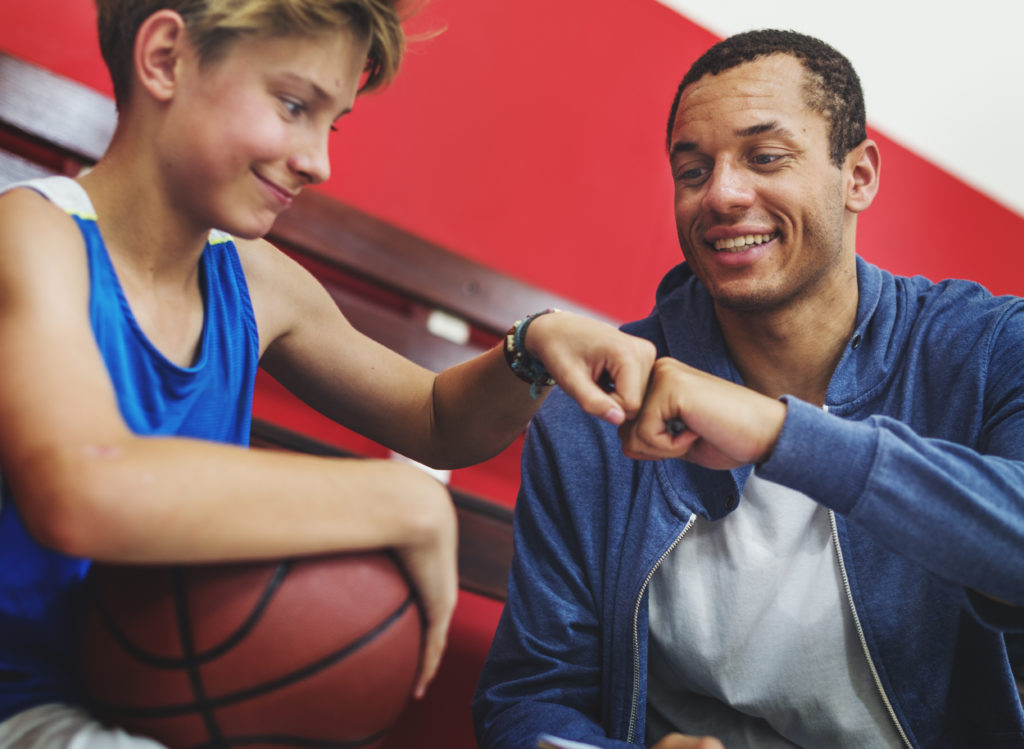Under Pressure: Athletes and Mental Health
A professional therapist talks about the unique pressures athletes face and the Sports Counseling that is available to them.

By Erika Ritchie
Staff Writer
Most of us have a favorite sport or a favorite athlete. We see people who play sports as strong, confident, and talented. What we often don’t see or think of is the immense pressure that athletes are under. That pressure can sometimes take a mental toll. Not only on professional and college athletes, but even young athletes who are just starting out in their sport.
Amy Wetzler is a Family Services therapist who specializes in Sports Counseling. I asked Amy about some of the pressures athletes face, the impact that pressure can have on their mental health, and what are the warning signs that an athlete may be struggling.
What is sports counseling?
Amy: “The ACA Encyclopedia of Counseling defines sports counseling as ‘A process which attempts to help individuals in maximizing their personal, academic, and athletic potential.’ It focuses on the mental health, performance, and overall well-being of the athlete.”
What are some of the reasons that athletes turn to you for help?
Amy: “Some reasons that athletes turn to me for help are when depression, anxiety, or trauma may impact the athlete’s performance and prevent them from performing at their optimal level. Other reasons may involve lack of self-confidence, sports burnout, pressure from parents, coaches, or fans, expectations to be a leader and role model, sport specialization, emotional impact of injury, unmet dreams, and sports transitions such as retirement or a change to their career.”
Tell me about a strategy you encourage athletes to use, especially young athletes.
Amy: “It’s difficult to narrow the strategies to just one strategy. However, some effective strategies that I would encourage athletes to use are realistic goal setting, visualization, diaphragmatic breathing, and Cognitive-Behavioral approaches. Setting realistic goals and achieving those goals can improve self-confidence in the athlete as well as help them perform at their optimal level. Visualization and diaphragmatic breathing can help decrease anxiety in performance situations, and also improve physical performance as well. Cognitive-behavioral approaches addresses irrational fears and maladaptive thoughts that get in the way of performance.”
Do you find that there is any stigma attached to mental health struggles among athletes?
Amy: “There is a lot of stigma attached to mental health struggles among athletes because many athletes feel that they have to be tough, both physically and emotionally. They often feel that they can’t show any signs of weakness. This places a lot of pressure and stress on the athlete because they end up holding a lot of their feelings inside. If these feelings aren’t dealt with, it can affect the emotional health of the athlete as well as their overall performance.”
What are some signs you would encourage parents to look out for, to know if their child athlete might be struggling?
Amy: “Some signs to look out for to tell if your child athlete is struggling may be:
- No longer having fun. One of the number one reasons why kids play sports is because it is fun. If they stop having fun, this may be a sign that something bigger is going on.
- Performance anxiety. If your child athlete does well at practice, but caves under pressure in performance situations.
- Burnout. If your child athlete is not having fun anymore, is constantly fatigued and irritable, it may be a sign that your child is burned out.
- The Slumps. If there has been a decrease in your child athlete’s performance that has continued over a period of time.
- Social withdrawal. If you notice that your child athlete has started withdrawing from family and friends and often stays to themselves.
- Depressive thoughts. This may be exhibited as low mood, tearfulness, negative self-talk, lack of motivation, and social withdrawal.
There may be other signs as well, but these may be some of the more common ones that you notice.”
What is your advice for athletes of any age, who may be feeling anxious or depressed?
Amy: “To not be afraid to seek help. Seeking help is not a sign of weakness, but is actually a sign of strength. Mental health can greatly impact the athlete’s performance if not addressed. Sports counseling can help athletes learn healthy coping skills to manage their feelings effectively, which in turn, could improve the athlete’s performance.”
For more information about Sports Counseling or to schedule an appointment with Amy, call (920) 436-6800.